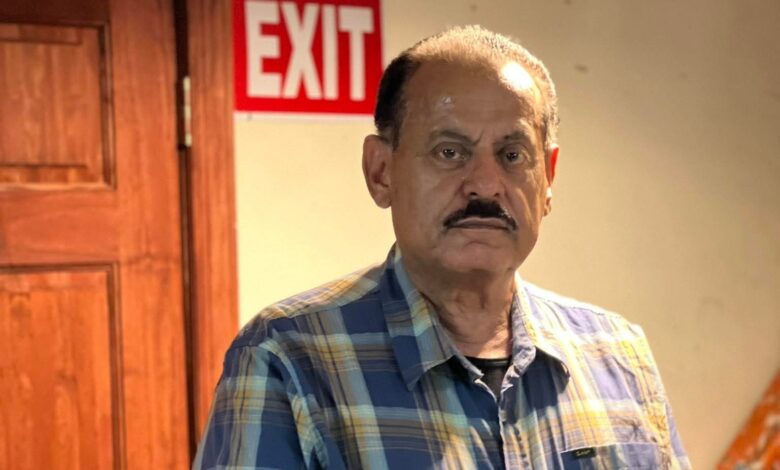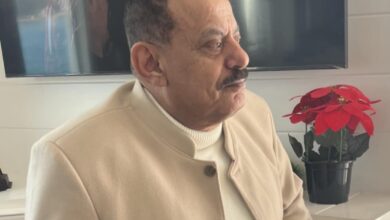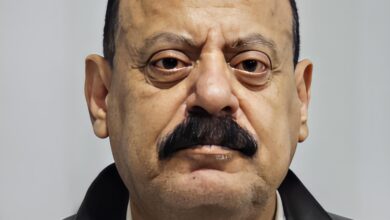My Marriage Contract

Yemeni mp
Ahmed Saif Hashed
Khaled, her eldest brother, had always seemed impulsive and sharp-tempered to me. Whenever I saw him, his face appeared stern and angry. We never spoke, not even out of courtesy. For a long time, he couldn’t remember my first name. I often felt that he couldn’t stand me, that even a passing greeting on a road or walkway was too much for him to offer.
There was no chemistry or harmony between us. Whenever he was around, I felt estranged, and he, too, seemed to feel an even deeper estrangement in my presence. A mutual aversion stood like a wall between us, preventing any genuine connection. No smile ever softened the air between us. I always sensed an invisible yet wide psychological barrier keeping us apart.
Perhaps he saw in me the man who ruined his attempt to marry off his sister to someone familiar from his own city. I also came to know that my being a northerner, a man from the countryside, did not sit well with him, though his own father, a kind man, hailed from the far north, from a rural village himself. The irony was that their family was well known as “Al-Zaidi family,” and Khaled himself was known to everyone as “Khaled Al-Zaidi.” Yet, despite all this, it was Khaled who was meant to place his hand in mine to seal the marriage contract of his sister.
On the appointed day, I arrived at their home with a cheerful and radiant face, full of life and hope. My heart overflowed with joy and affection. But at first glance, I didn’t see Khaled among them—the very person I was looking for, thinking this occasion might be larger than our differences and strong enough to open a new page between us. I imagined this day would be a good omen, one that would lift us both to something nobler. I thought he would be at the forefront of those welcoming me, with at least some formality or courtesy, even if only for his sister’s sake, since we were on the verge of becoming one family. Or, at the very least, that he would greet me with the same expression I had come to expect from him. But to my surprise, he was not in the house at all.
I said to myself: What could have happened? We had agreed that today would be the day of the contract, and the very man whose hand I was supposed to clasp was missing. That could only mean something urgent or serious. Clearly, there was more beneath the surface. Why is he absent? I doubted that this strange and troubling absence could carry any good with it.
A wave of unease swept over me, anxiety tightening its grip on my chest. I felt a hollow emptiness threatening to undermine the very purpose of my visit. Confusion consumed me; questions scattered my thoughts, and my mind wandered far, imagining all manner of worrying possibilities.
The conversation in the sitting room began awkwardly, weighed down by unease and long silences that I didn’t know how to break. I endured it, suspecting that some family dispute had arisen and that I might have been the cause of it. Perhaps, I thought, the disagreement had grown so tense that the contract was postponed until it could be resolved within the family, and in my absence in particular. Then, as my thoughts raced, heavier assumptions began to close in on me.
A deep fear seized me, one that threatened not only to postpone the contract but to demand a temporary delay that could lead, step by step, to backing out of the matter altogether. I felt a genuine danger looming over what I desired in its entirety, a threat striking at the very root of my hopes. Yet what happened afterward was, for the most part, nothing like what I had imagined. It surprised me—indeed, it was the opposite of what I had feared.
I found that the girl’s mother had firmly made her decision in my favor. She had arranged everything for the contract so that her son’s absence—the one who was supposed to handle the ceremony—would have no effect. From behind the scenes, she directed affairs like Shajarat Al-Dur, the legendary queen who ruled from behind a veil.
She entrusted the management of the contract session to her brother Abdullah, though the reins he held were clearly tied to the mother’s strong authority. She assigned the actual signing of the contract to her elder son from another marriage, instead of Khaled, who had probably stormed out in anger and irritation early on and never returned.
It seemed to me that the mother had achieved unanimous acceptance within the family, except for her estranged and furious son. This, at least, was how I guessed the matter stood, or how it appeared to me. I had hoped for unanimity, but unanimity had a fissure in it—Khaled.
* * *
The girl’s uncle began conducting the session, and he set the dowry at thirteen thousand shillings. Hearing that number struck me like lightning. It was precisely the sum I had in my postal savings account, painstakingly accumulated over a long period.
I was astonished by this exact figure, how it matched the amount I owned—a secret I had never revealed to anyone. Was it chance? Yet chance is rare, and sometimes it feels like a miracle. Why this number exactly? Did they have devils whispering to them the exact sum I had saved? Did they read my thoughts? What was the story of this number? Thirteen! The number unsettled me further, for it is known as an ill omen in many nations and cultures.
Hearing it was like a boulder crashing down on my head. I tried to appear composed but in vain. For a moment I felt stunned, as though my consciousness had drifted far away. My face betrayed everything I wanted to conceal; even a child still learning to speak could have read the moment on my features with ease.
In a low voice, heavy with embarrassment, I tried to request a reconsideration of the sum. But the matter seemed nonnegotiable. There was no margin or space for the one conducting the session to maneuver. The affair was settled and done. Even the military maxim “Execute first, then discuss” had no place here. All the kindly uncle of the girl did was explain the details: that I would also be responsible for the costs of Al “Sobhiyah” (the morning-after celebration), while they would cover the expenses of the wedding night itself.
I wanted to add a sentence in that gathering: “I am not stingy, but my resources are exhausted.” Yet later I realized that saying it would have been reckless, perhaps fatally so. It might have overturned everything, struck me down with a blow from which I would never recover, and ended the matter entirely.
At that critical moment my cousin, Abdu Farid, intervened. He was right to do so. He quickly agreed, gathering the matter with tact, leaving no space for the devil to threaten everything and scatter it to the winds. And truly, I don’t wish to accuse the devil, to slander him and blame him for my own stupidity and folly. Had I pursued what I was thinking at that instant, everything would have dissolved into nothingness, leaving me in a deep and lasting sorrow. Had it happened, I would have punished myself severely and borne regret for a lifetime, never allowing myself to speak again until the morning of Eid.
* * *
Thus the matter was saved, as though fate itself had intervened, and the contract was concluded as planned on the afternoon of April 10, 1990. I heard ululations of joy echoing through the rooms and corridors of the house. It was the first joyous ululation of my life, yet it was tainted by a heavy worry, a choking confusion, a bitter question lodged in my throat: From where? What should I do to complete the path to marriage? I would need magic and a magician, or destiny itself to say to a thing “Be,” and it would be. I would need another arduous journey to gather an amount close to, or even slightly less than, what I had already paid, just to finish the wedding and move to the marital home.
In that moment I felt more than bewildered; I was reproaching myself, scolding myself inwardly:
*I am a complete failure at arithmetic, painfully weak in economics, a novice at life’s trials, utterly inexperienced in the ways of those about to marry. Saving money has been an ordeal beyond imagining. How will this end? Will I reach my wedding day, or will a deadly disappointment take its place, taking away both the day and the one I love?
I sank beneath the weight of a hard reality, forced to contend with it. I felt that I and the law were living the same tragedy. That year, Yemeni unity was knocking at the door, while many rights were more threatened than ever before, boldly diminished and eroded before our eyes.
At the signing of the contract, I asked for a three-month reprieve. Yet in practice, even that would not be enough to make me ready for the wedding night, not even if I bound my own hands in iron against spending.
I remembered my tender mother in the village, her love for me almost beyond belief. She would not withhold even her life if I asked it of her. This was the mother who had given herself up for me time after time, who had borne for my sake what mountains could not carry. And so, she was my first destination.
This mother, who had always urged me to complete “half of my faith” by marrying, had now come to the moment when I would need her to shoulder part of the debt of that faith. The “half of my faith” I had thought would be light had proved heavier than heavy, no verse of the Qur’an nor ring of iron, but a reality far weightier, rougher, and more brutal than my dreaming imagination had ever pictured.
This mother, who had watched over me and my “half of faith” for so many years, now contributed from what she had set aside against grim times: thirty grams of “Shairiyya” gold—her own dowry, her small treasure saved for a joy like this or for a hardship that might strike without warning. She rejoiced in my joy until she nearly soared with it. The dream she had cherished for more than ten years was now within reach.
My mother also inspired in my father a spirit of sympathy and generosity. He supported me as well, open-handed and kind. He came with me to the house of the girl I had contracted to marry. He was gracious and pleasant, and they even said he was more handsome than I was.
After all this, my dream began to knock at the door of the possible, the near. And in the midst of it I gifted my beloved a song by the singer Nihad Tarabayh, “We’ll Get Married on Eid,” meaning by it only our wedding day and nothing else.
* * *






